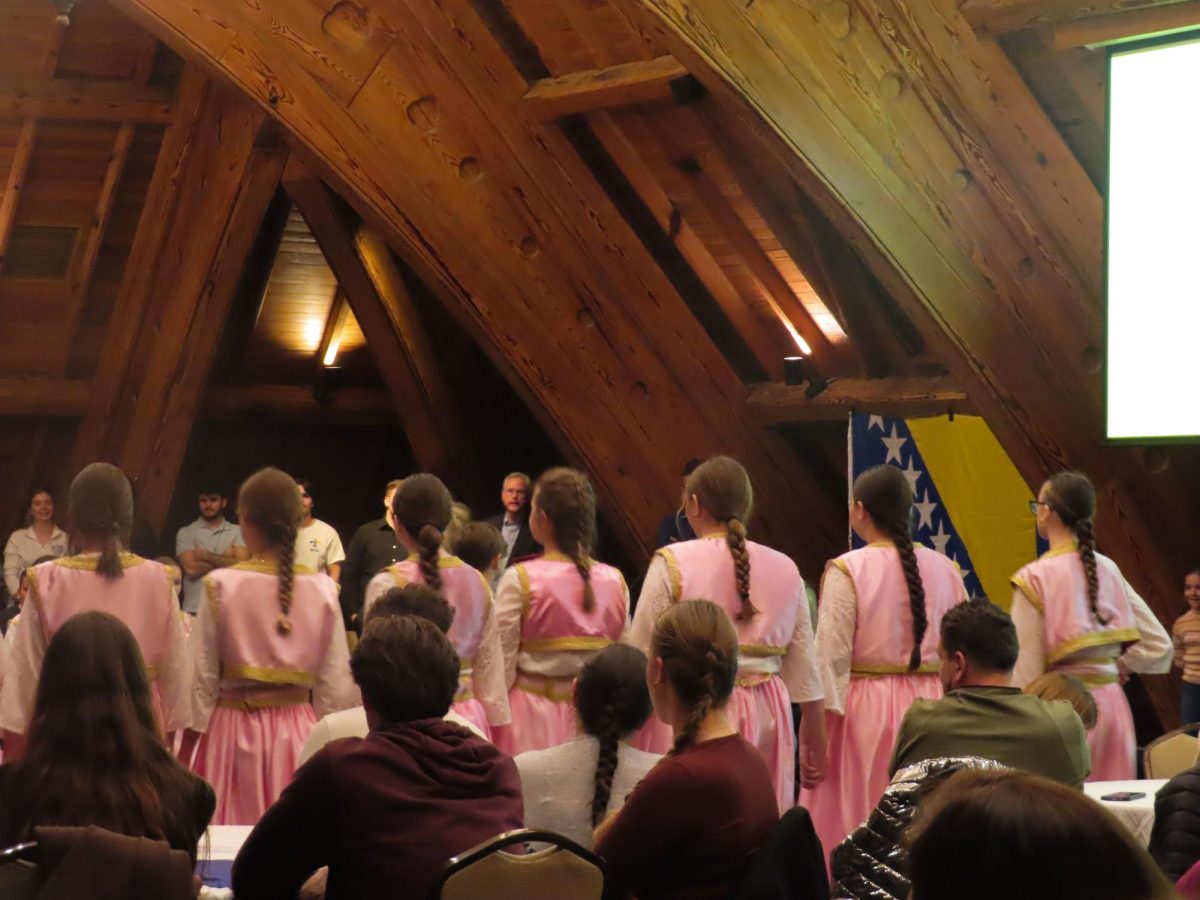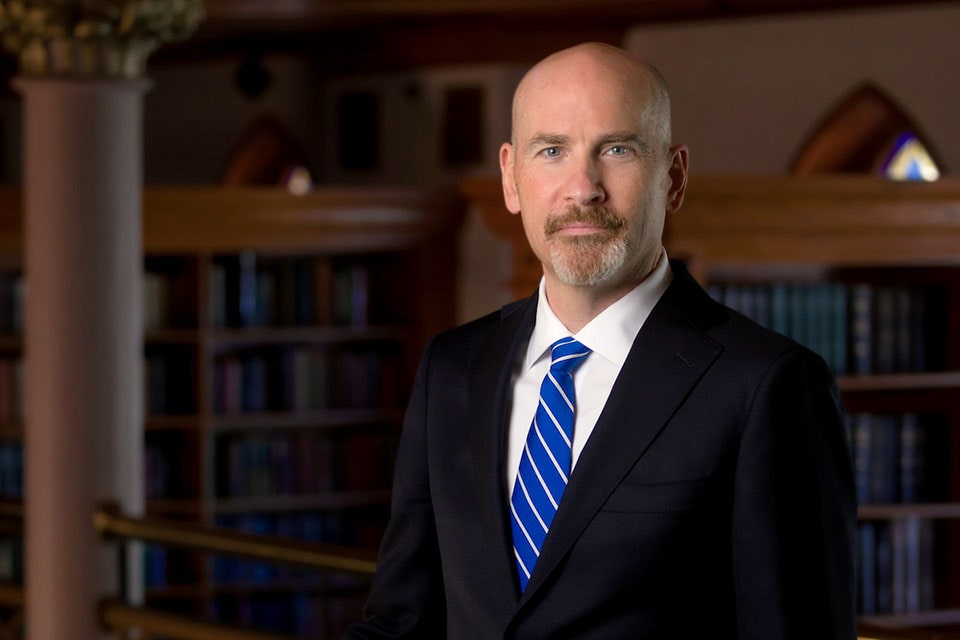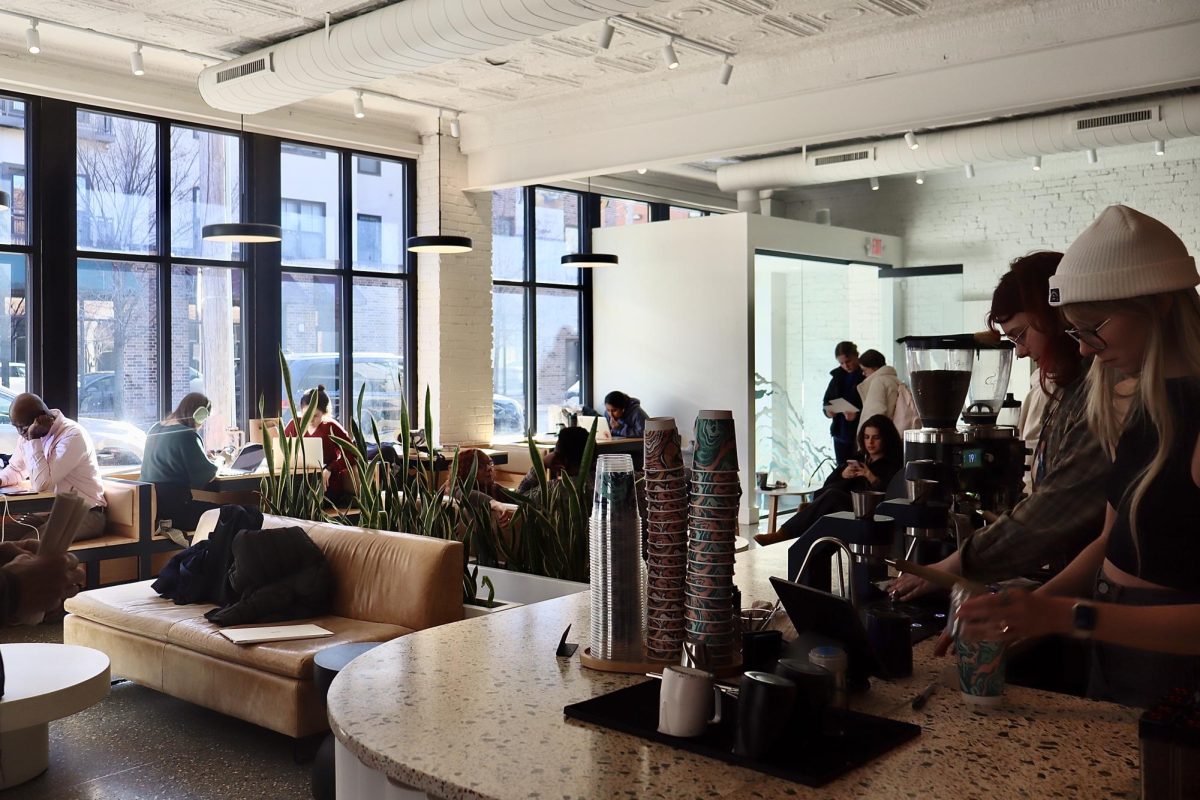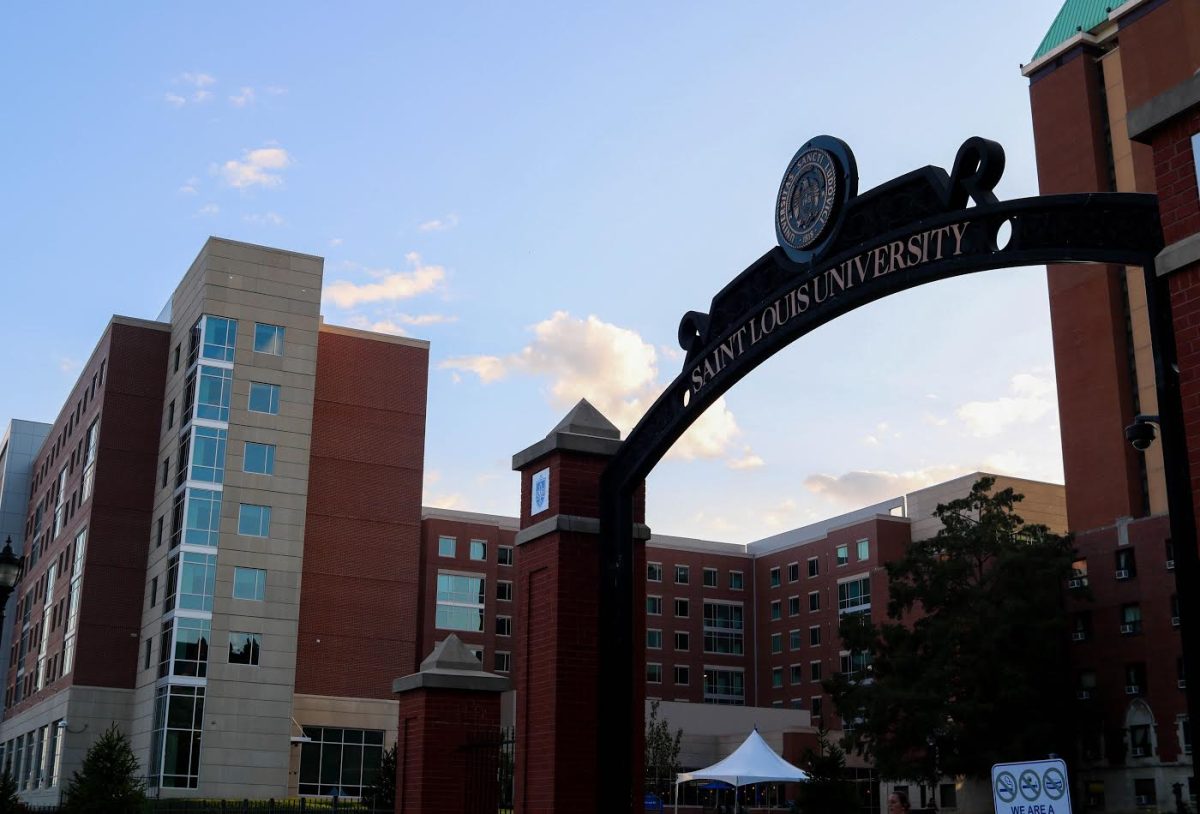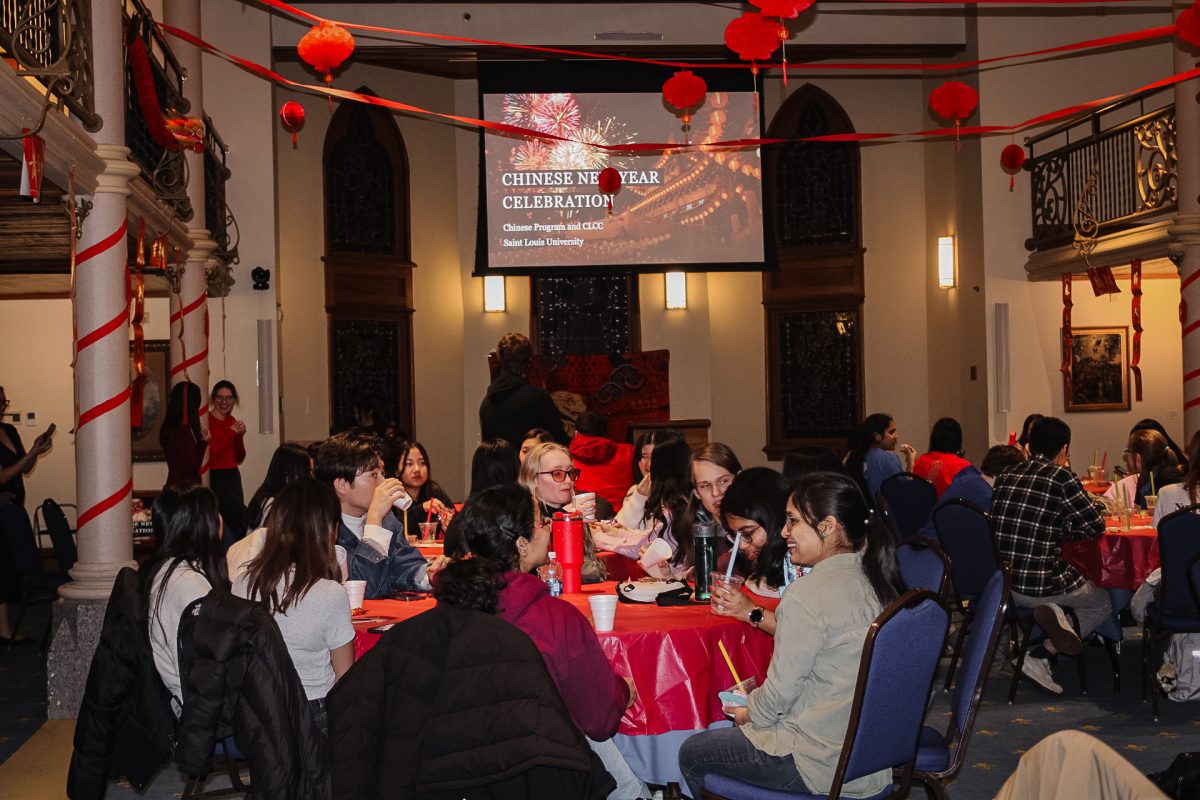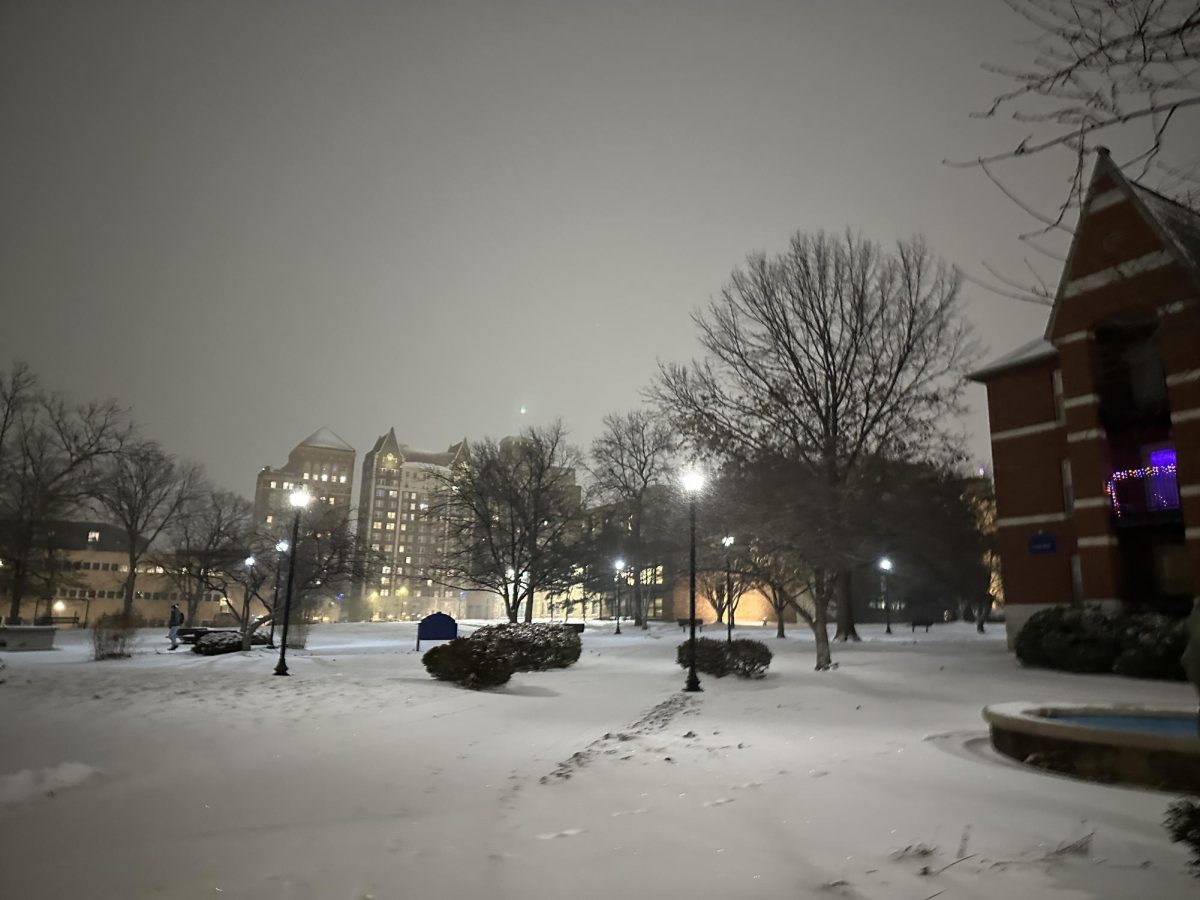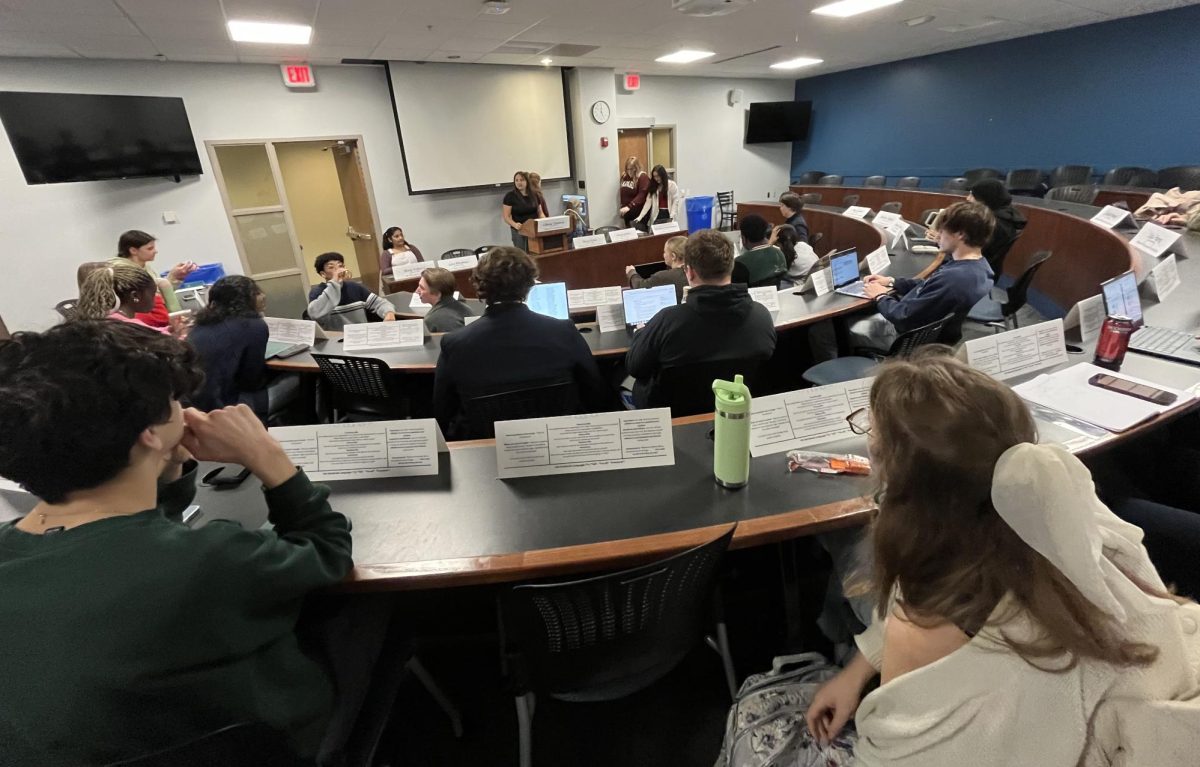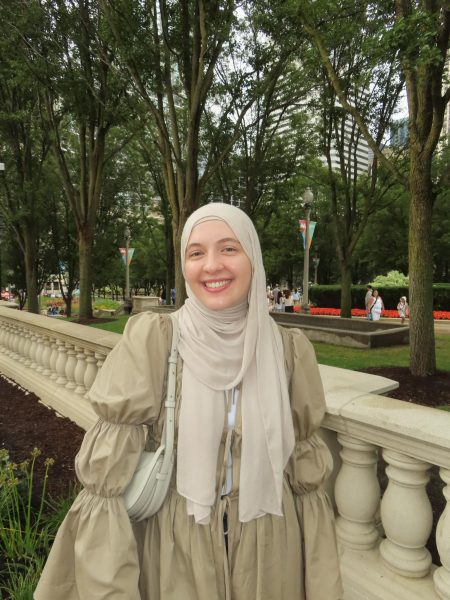Over a hundred students and community members packed the Sinquefield Stateroom in DuBourg Hall, their English and Bosnian conversations filling the air. As an upbeat cultural tune began to play, all eyes turned to the folk dancers. The Bosnian flag hung near the dancers as the crowd watched them perform.
The crowd was gathered to celebrate Bosnian Statehood Day (“Dan Državnosti” in Bosnian), which commemorates the day Bosnia’s multiethnic statehood was restored after Nazi Germany’s occupation, at an event hosted by Saint Louis University, Webster University and Maryville University’s Bosnia-Herzegovina student organizations on Nov. 22.
St. Louis is home to the largest Bosnian community outside of Bosnia. After The Bosnian War (1992-1995) forcibly displaced over two million people, more than 60,000 Bosnian refugees settled in St. Louis, including in “Little Bosnia” located near SLU’s campus.
Asmira Alagic, an associate professor of chemistry at SLU and the vice president of academics for Saint Louis Balkan American Connection, said the deeper significance of events like these is to celebrate Bosnian culture, build community and gain new perspectives on the experiences of the Bosnian diaspora.
“We’ve gone through a lot,” Alagic said. “It’s really a community of resilience [and hard work]. Now we’re kind of at the state where we can celebrate people who are doing well, and we want them to do even better.”
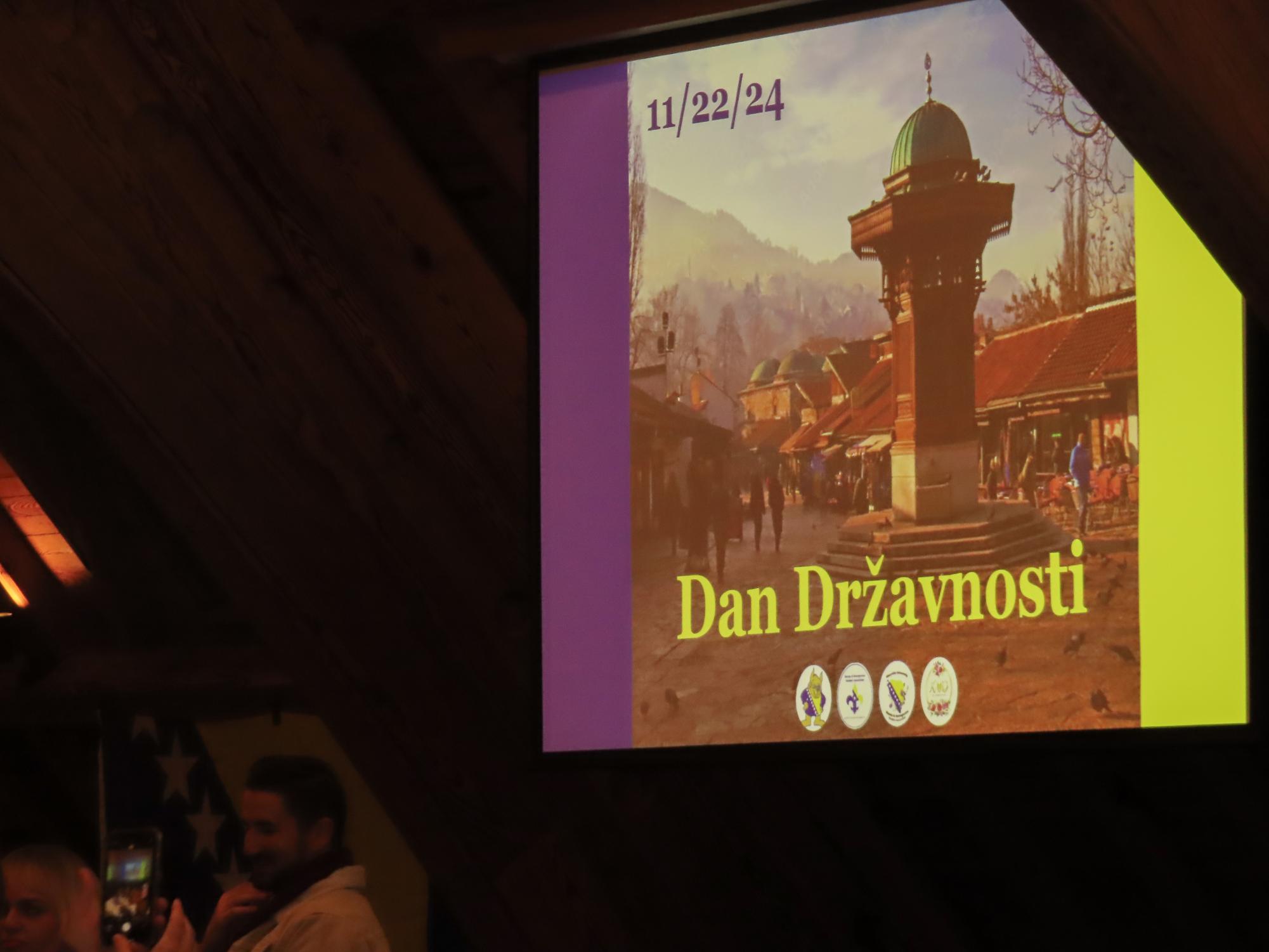
The evening program began with an introduction from the president of SLU’s Bosnia-Herzegovina Student Association (BHSA), followed by a presentation by Webster University’s Bosnian Cultural Club, a performance of a traditional cultural dance by the Kud Djerdan group and dinner from Taste of Bosnia.
As a first-generation American, SLU senior and BHSA president Elma Bjelevac said events like the Statehood Celebration help her connect with her Bosnian culture and share it with other members of the campus community.
“I feel like as students come from out of state to Saint Louis University, a big part of it is realizing a lot of our commuters are Bosnians. A lot of your classmates who you don’t know are Bosnian,” Bjelevac said. “It’s a really important part to let our community know.”
Senior student Amir Ugarak and BHSA’s chair of public relations grew up with strong ties to his Bosnian identity. Ugarak shares Alagic and Bjelevac’s belief that creating community on campus is important.
“A sense of community is a really good feeling that you get, you feel like you belong somewhere,” Ugarak said.
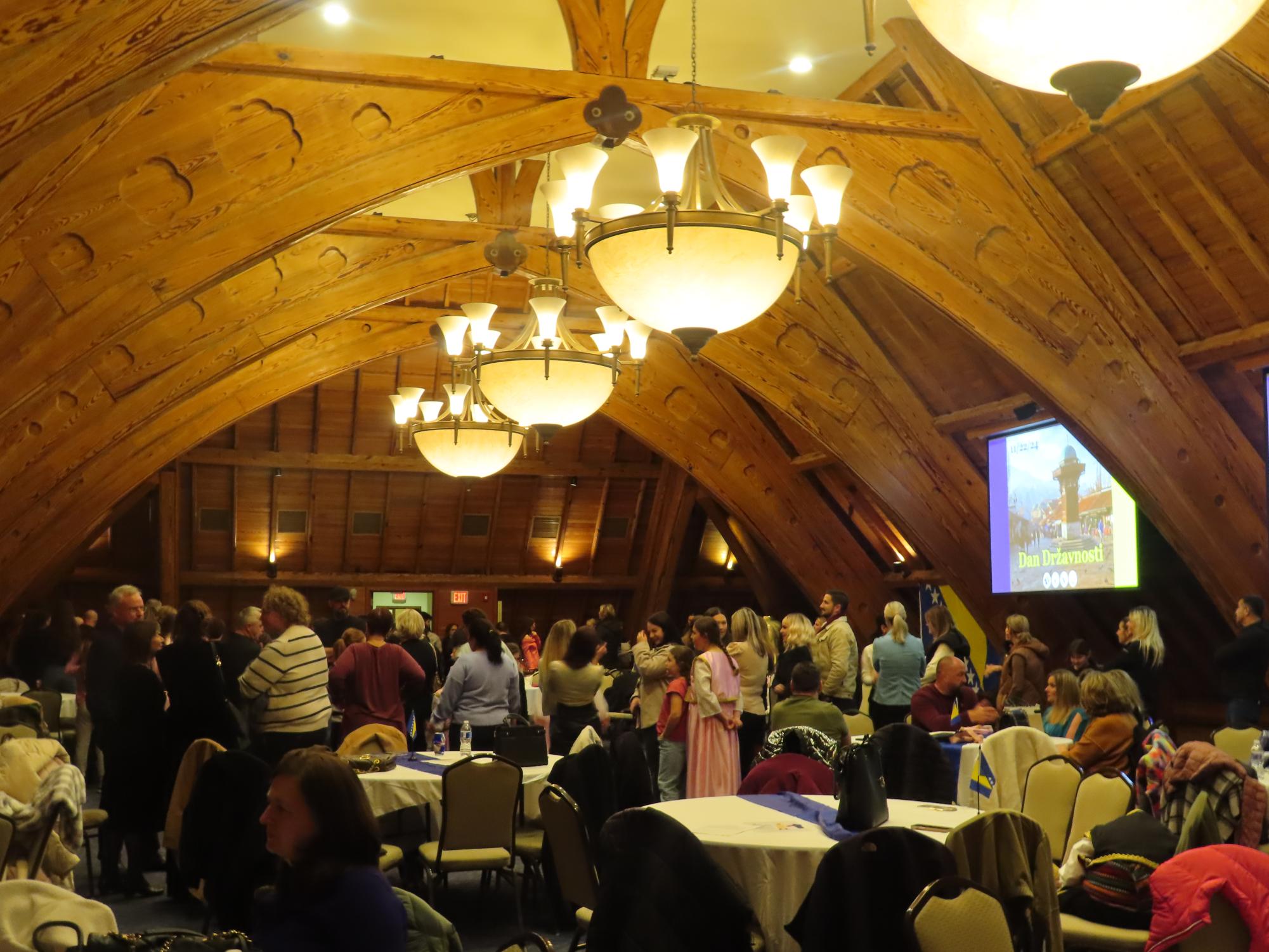
In addition to showcasing Bosnian culture, the celebration shed light on significant parts of Bosnia and Herzegovina’s history.
Patrick McCarthy, the faculty advisor for SLU’s BHSA and one of the authors of “Bosnian St. Louis: Between Two Worlds,” used his brief speech at the event to describe the significance of Statehood Day and upcoming anniversaries.
“Bosnia regained its statehood in 1943 as a country with one of the strongest anti-fascist movements in Nazi-occupied Europe,” McCarthy said. “Next July, we will memorialize the 30th anniversary of the Genocide in Srebrenica with a walk downtown, a community picnic and a series of weekend events to mark those tragic days.”
Alagic, Bjelevac and Ugarak all emphasized the resilience of the Bosnian diaspora that they have observed in their community work and through their experiences as Bosnians.
“I feel like my parents didn’t come here for me to forget about my culture. They kind of came here for me to grow with it and embrace it,” Bjelevac said. “A key part of how I identify is being Bosnian, just because I feel like that really kind of sums up how I am, how driven I am, my struggles, my goals. I think it just draws a lot of attention back onto what my parents went through to let me even continue my education at a university like Saint Louis University.”




